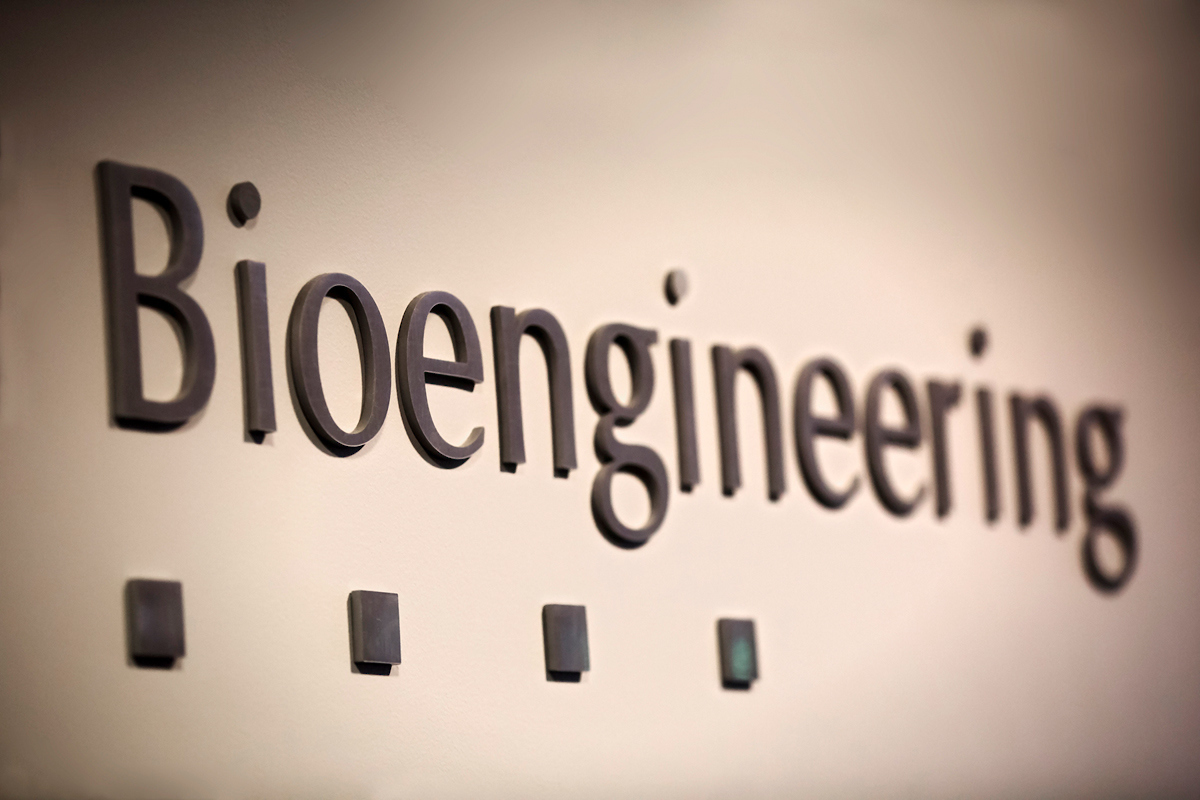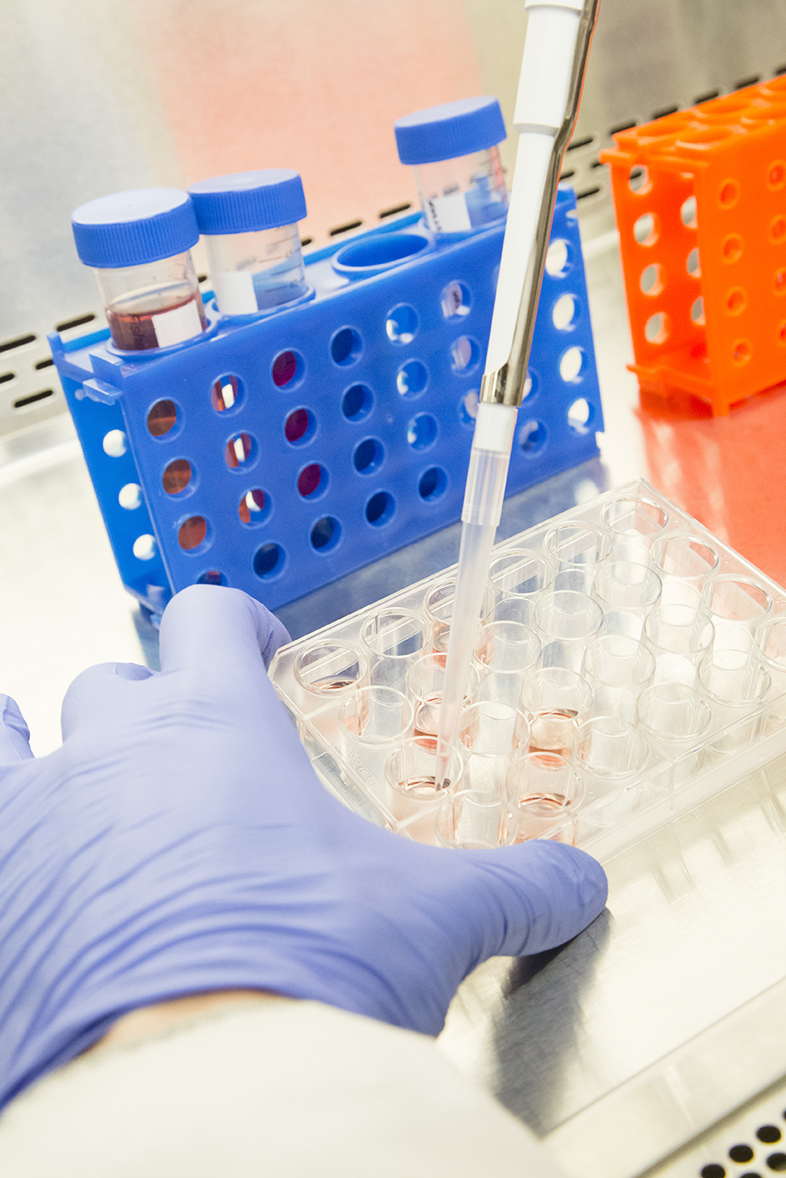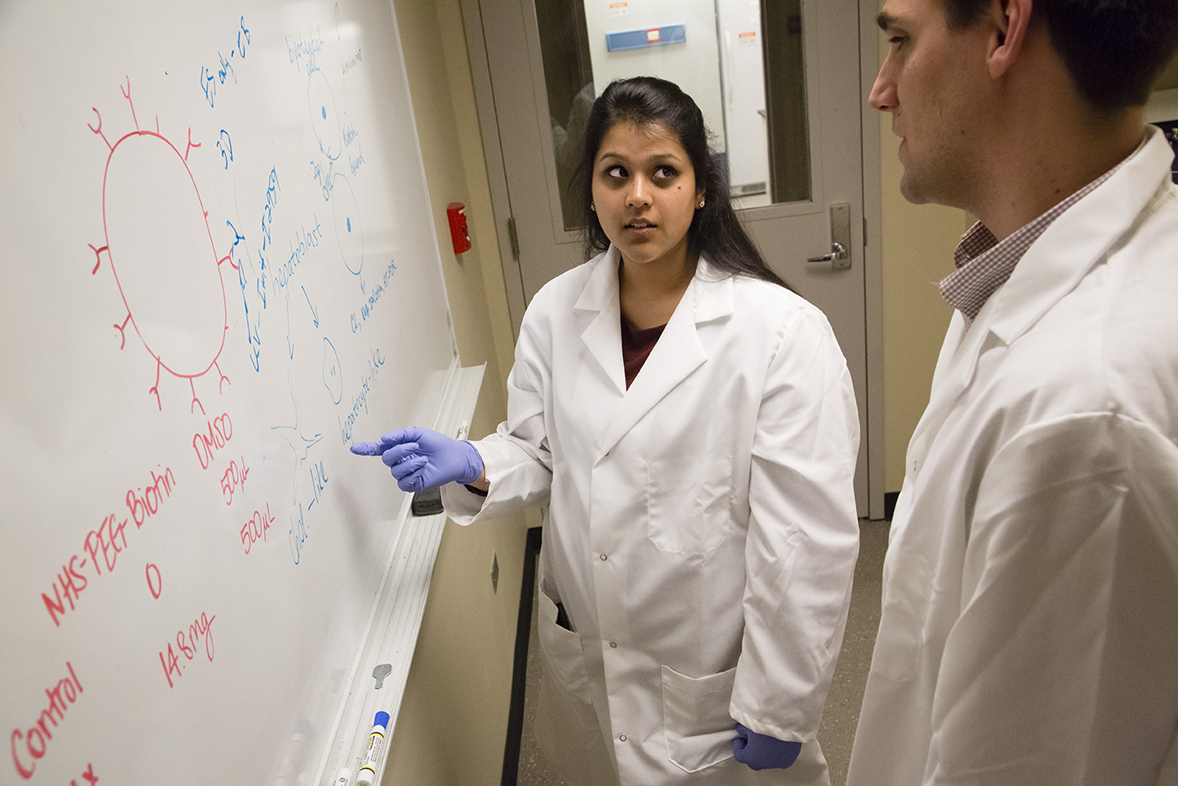Bioengineering
Bioengineers use tools from biology, chemistry, physics and math to solve engineering problems that arise in biological systems related to biomaterials, biomechanics and prosthetics, tissue engineering, molecular modeling, imaging, bioinformatics, nanomedicine, synthetic biology, and drug delivery. The goal of research and education in bioengineering is to advance fundamental understanding of how human biological systems function, and to develop effective technology-based solutions to the wide spectrum of societal needs in human development and disease diagnosis, treatment, and prevention.
The curriculum includes integration of principles of biology and engineering in coursework such as biomechanics, modeling of human physiology, bioinstrumentation, and cell and tissue engineering. The focus is project-based and has a strong emphasis on systems-thinking as an approach to large-scale bioengineering problems.
- BIOE 120—Introduction to Bioengineering
- CHEM 102/103—General Chemistry I / General Chemistry Lab I
- MCB 150—Molecular & Cellular Basis of Life
- MATH 221—Calculus I
- MATH 231—Calculus II
- PHYS 211—University Physics: Mechanics
- PHYS 212—University Physics: Electricity & Magnetism
Students should consult with an academic advisor regarding course selection prior to the advanced registration period.
Graduates may work as biomedical engineers with medical practitioners to develop new medical techniques, medical devices, and instrumentation for manufacturing companies. Clinical engineers work in hospitals and clinics to maintain and improve the vast amount of technological support required in modern medicine. With advanced degrees, some graduates perform basic research related to biology and medicine in the research laboratories of educational and governmental institutions or in the medical industries.
- Ability to design and conduct experiments
- Analytical skills
- Communication skills
- Critical thinking skills
- Design and build medical devices
- Quantitative skills (math, science, eng.)
- Research skills
- Strong background in life science fundamentals and medical systems
- Teamwork skills
- Technologically inclined
- Biomaterial Systems Physiologist
- Biomechanics Specialist
- Biomedical Designer
- Biomedical Engineer
- Clinical Engineer
- Healthcare Professional
- Lab Director
- Manufacturers Representative
- Project Engineer
- Support Specialist
- Research Associate
- Technical Advisor
Some careers may require education beyond an undergraduate degree.
- Participating in undergraduate research
- Applying for a study abroad experience
- Utilizing resources of The Career Center and Engineering Career Services
- Joining a Registered Student Organization (RSO) related to this major, such as:
- Biomedical Engineering Society, UIUC Chapter: Promotes the increase of biomedical engineering knowledge and its utilization.
- National Society of Black Engineers: NSBE's mission is to increase the number of Black engineers who excel academically, succeed professionally, and positively impact the community.
There are several professional organizations dedicated to Bioengineering. Their websites might be able to provide a glimpse in the world of Bioengineering. These organizations include Biomedical Engineering Society and The National Institute of Biomedical Imagining and Bioengineering.


